Discover UCL Institute of Advanced Studies
UCL Institute of Advanced Studies
UCL Institute of Advanced Studies
Author: UCL Institute of Advanced Studies
Subscribed: 60Played: 1,751Subscribe
Share
© All rights reserved
Description
The Institute of Advanced Studies is a space dedicated to intellectual freedom where disruptive thinking is not only allowed but encouraged and supported. It is a centre of advanced research, debate and dialogue across any kind of boundary, intellectual or institutional. It’s a forum where difficult, even intractable, social questions can be exposed to the scrutiny of rigorous critical enquiry from a variety of perspectives.
This Soundcloud channel is for content produced by the Institute of Advanced Studies and its different research centres.
This Soundcloud channel is for content produced by the Institute of Advanced Studies and its different research centres.
420 Episodes
Reverse
Gala Rexer welcomes Xine Yao, Associate Professor at UCL and author of Disaffected: The Cultural Politics of Unfeeling in Nineteenth-Century America (Duke University Press, 2021). Reflecting on how Disaffected has travelled as a book, a theory, and a method over the past two years, Xine speaks about what thinking though and with the fields of Black studies, Indigenous studies, Asian diasporic studies, and queer of colour critique does to our understanding of race, gender, and affect, and how we approach literary and cultural text as theory. They discuss how their citational practices shape teaching and scholarship, and explore the modes of affective disobedience that engender counter-intimacies and new forms of decolonial solidarity.
Transcript available here: https://www.ucl.ac.uk/racism-racialisation/podcasts/transcript-conversation-xine-yao
www.ucl.ac.uk/racism-racialisation/
Gala Rexer welcomes Akwugo Emejulu, Professor of Sociology at the University of Warwick and author of Fugitive Feminism (Silver Press, 2022). Discussing the figure of the fugitive from a Black feminist perspective, Akwugo addresses questions about solidarity and coalitional work, strategies of counter-storytelling and playing with new forms of writing, and discusses the difficulties of staying in the liminal space of fugitivity as a mode of experimentation, ambivalence, and disidentification from the figure of the Human.
Transcript available here: https://www.ucl.ac.uk/racism-racialisation/conversation-akwugo-emejulu
www.ucl.ac.uk/racism-racialisation/
Luke de Noronha welcomes Musab Younis, senior lecturer in politics and international relations at Queen Mary, University of London, and author of On the Scale of the World: The Formation of Black Anticolonial Thought (University of California Press, 2022). Musab traces the themes and arguments of his important new book, which examines the reverberations of anticolonial ideas that spread across the Atlantic between the two world wars. Musab gathers the work of writers and poets, journalists and editors, historians and political theorists whose insights speak urgently to contemporary movements for liberation.
Transcript available here: https://www.ucl.ac.uk/racism-racialisation/conversation-musab-younis
www.ucl.ac.uk/racism-racialisation/
Maya Mikdashi is an Assistant Professor at the Department of Women’s and Gender Studies and a lecturer in the program in Middle East Studies at Rutgers University, New Brunswick. In conversation we discuss Maya's first book, Sextarianism: Sovereignty, Secularism, and the State in Lebanon.
Transcript available here: https://www.ucl.ac.uk/racism-racialisation/conversation-maya-mikdashi
www.ucl.ac.uk/racism-racialisation/
Luke de Noronha welcomes Maurice Stierl, researcher at Osnabrück University in Germany and author of Migrant Resistance in Contemporary Europe (Routledge, 2019). Maurice describes the varied patterns of movement and militarisation at the sea borders of Europe: the Atlantic, Central Mediterranean, Aegean and Channel crossings. In both his intellectual and activist work, Maurice joins those demanding free movement for all and an end to Europe’s border violence. This conversation charts those urgent political struggles by and for people on the move.
Transcript: https://www.ucl.ac.uk/racism-racialisation/transcript-conversation-maurice-stierl
This conversation was recorded on 15th December 2022.
Speakers: Dr Luke de Noronha, Lecturer in Race, Ethnicity & Postcolonial Studies, SPRC // Maurice Stierl, researcher at Osnabrück University in Germany
Producers: Dr Luke de Noronha and Lucy Stagg
Editors: Kaissa Karhu
www.ucl.ac.uk/racism-racialisation/podcasts
Gala Rexer welcomes Françoise Vergès, franco-Reunionnese activist, independent curator, and public educator, to talk about her most recent books, A Feminist Theory of Violence (2022), The Wombs of Women. Race, Capital, Feminism (2020,) and A Decolonial Feminism (2019).
Transcript: https://www.ucl.ac.uk/racism-racialisation/transcripts/transcript-conversation-francoise-verges
This conversation was recorded on 25th October 2022.
Speakers: Gala Rexer, postdoctoral fellow at the Sarah Parker Remond Centre // Françoise Vergès, political scientist, historian, film producer, independent curator, activist and public educator.
Producer: Julia Thomas and Lucy Stagg
Editors: Amie Liebowitz and Kaissa Karhu
www.ucl.ac.uk/racism-racialisation/podcasts
Karimah Ashadu joins the SPRC podcast to discuss two of her recent films, 'Brown Goods' (2020) and 'Plateau' (2022), on the labour and labourers that sustain informal economies of waste disposal and tin mining in Germany and Nigeria.
'Plateau' (excerpt), 2021-2022
HD digital film, colour with sound - two channel
https://youtu.be/d8oOp-dX6hk
courtesy the artist and Fondazione in between Art Film
'Brown Goods' (excerpt), 2020
HD digital film, colour with sound - single channel
https://youtu.be/4RJxFRBjqws
courtesy the artist
Transcript: www.ucl.ac.uk/racism-racialisation/transcript-conversation-karimah-ashadu
This conversation was recorded on 2nd September 2022
Speakers: Lara Choksey is Lecturer in Colonial and Postcolonial Literatures at UCL English, and Faculty Associate at the UCL Sarah Parker Remond Centre. // Karimah Ashadu is a British-born Nigerian artist and recipient of the 2020 ars viva Prize for Visual Arts
Producer and editor: Kaissa Karhu
www.ucl.ac.uk/racism-racialisation/podcasts
Coretta Phillips, Professor of Criminology and Social Policy, joins Clive Nwonka for a conversation on race, criminal justice and social policy. Coretta discusses ethnographically capturing both the organic experiences of multi-culture and the more structured and governed forms of multiculturalism taking place within the prison system, her recent work on criminal justice experiences of Gypsy and Traveller communities in England since 1960, and the complacency and the complicity in racist practices in higher education.
Transcript: www.ucl.ac.uk/racism-racialisation/transcript-conversation-coretta-phillips
This conversation was recorded on 20th May 2022
Speakers: Clive Nwonka, Lecturer in Film, Culture and Society at UCL’s Institute of Advanced Studies // Coretta Phillips, Professor of Criminology and Social Policy at the London School of Economics and Political Science
Producer: Kaissa Karhu
Editor: Amie Liebowitz and Kaissa Karhu
www.ucl.ac.uk/racism-racialisation/podcasts
Professor Gregory Thompson explains more about the emphasis of the BA Creative Arts and Humanities programme on careers and the future of work.
Medical anthropologist, James Doucet-Battle, joins us to talk about his book, Sweetness in the Blood: Race, Risk and Type 2 Diabetes. Discussing the importance of delinking race from risk in order to tell a more holistic, anthropological story of what it means to be Black, James brings autobiographical elements into his work and explores the relationship between race, gender and ancestry, the mapping of Henrietta Lacks’ HeLa cells and his own journey into Black feminist thought.
Transcript: www.ucl.ac.uk/racism-racialisation/transcript-conversation-james-doucet-battle
This conversation was recorded on 9th June 2022
Speakers: Paige Patchin, Lecturer in Race, Ethnicity & Postcolonial Studies, UCL Sarah Parker Remond Centre // James Doucet-Battle, Assistant Professor in the Department of Sociology at the University of California, Santa Cruz // Alya Harding, Elinor Gibbs and Liz Kombate, MA students in Race, Ethnicity and Postcolonial Studies at UCL
Producer and Editor: Kaissa Karhu
www.ucl.ac.uk/racism-racialisation/podcasts
Luke de Noronha welcomes Kojo Koram, Lecturer in Law at Birkbeck School of Law and author of 'Uncommon Wealth: Britain and the Aftermath of Empire' (John Murray Press, 2022). Discussing his recent book, Kojo addresses questions around 20th century decolonisation, neoliberalism and national sovereignty, tying these threads to today’s spiralling global wealth inequality, accelerating climate crisis, migration and bordering, and the precarity expanding across so many different sectors in our society.
Transcript: www.ucl.ac.uk/racism-racialisation/transcript-conversation-kojo-koram
This conversation was recorded on 15th April 2022
Speakers: Luke de Noronha, Lecturer in Race, Ethnicity & Postcolonial Studies, UCL Sarah Parker Remond Centre // Kojo Koram, Lecturer in Law at Birkbeck School of Law, University of London
Producer: Kaissa Karhu
Editors: Anita Langary and Kaissa Karhu
www.ucl.ac.uk/racism-racialisation/podcasts
Co-author of Social Media and Hate, Shakuntala Banaji joins Clive Nwonka to delve into the theoretical and practical intersections of misinformation and online hate speech in contemporary societies. Shakuntala discusses online and offline activism, the intellectual source that inspired her work, and the broader question of media and communication study and its relevance for the analysis of race and racism.
Trigger warning: reference to threat of sexual assault and violent imagery (12:45 – 13:05)
Transcript: www.ucl.ac.uk/racism-racialisation/transcript-conversation-shakuntala-banaji
This conversation was recorded on 15th March 2022
Speakers: Clive Nwonka, Lecturer in Film, Culture and Society at UCL’s Institute of Advanced Studies // Shakuntala Banaji, Professor of Media, Culture and Social Change at LSE
Producer: Kaissa Karhu
Editors: Amie Liebowitz and Kaissa Karhu
www.ucl.ac.uk/racism-racialisation/podcasts
Clive Nwonka is joined by Farah Jasmine Griffin, author of Read Until You Understand, a deeply personal and wide-ranging mediation on Black culture, political freedom and humanity. Farah discusses writing with an ethic of care, honouring grace, mercy and beauty, and the relationship between rage and resistance. Farah also reflects on what she sees as the three sites of engagement for African-American and African diasporic studies: in the classroom, in the world, and in the planet.
Transcript: www.ucl.ac.uk/racism-racialisation/transcript-conversation-farah-jasmine-griffin
This conversation was recorded on 18th February 2022
Speakers: Clive Nwonka, Lecturer in Film, Culture and Society at UCL’s Institute of Advanced Studies // Farah Jasmine Griffin, William B. Ransford Professor of English and Comparative Literature and African American Studies at Columbia University
Image: Photo © Peggy Dillard Toone
Producer: Kaissa Karhu
Editors: Anita Langary and Kaissa Karhu
www.ucl.ac.uk/racism-racialisation/podcasts
Diego Sánchez-Ancochea, Professor of Political Economy of Development at University of Oxford
From the United States to the United Kingdom and from China to India, growing inequality has led to social discontent and the emergence of populist parties, also contributing to economic crises. We urgently need a better understanding of the roots and costs of these income gaps. 'The Costs of Inequality' draws on the experience of Latin America, one of the most unequal regions of the world, to demonstrate how inequality has hampered economic growth, contributed to a lack of good jobs, weakened democracy, and led to social divisions and mistrust.
In turn, low growth, exclusionary politics, violence and social mistrust have reinforced inequality, generating various vicious circles. Latin America thus provides a disturbing image of what the future may hold in other countries if we do not act quickly. It also provides some useful lessons on how to fight income concentration and build more equitable societies.
Event date: January 20, 2022
This online seminar (14/12/2021) was a book launch for Ada Ferrer's new book. Spanning more than five centuries, 'Cuba: An American History' is an ambitious and moving chronicle of the country's history and its relationship with the United States. Drawing on more than thirty years of research—as well as her own extensive travel to the island over the same period—Ferrer examines and reveals the evolution of modern Cuba, documenting not only the influence of the United States on the island but also the many ways Cuba has been a recurring presence in US affairs.
Ada Ferrer is Julius Silver Professor of History and Latin American and Caribbean Studies at New York University, where she has taught since 1995. She is the author of Insurgent Cuba: Race, Nation, and Revolution, 1868–1898, winner of the Berkshire Book Prize for the best first book by a woman in any field of history, and Freedom’s Mirror: Cuba and Haiti in the Age of Revolution, which won the Frederick Douglass Book Prize from the Gilder Lehrman Center at Yale University as well as multiple prizes from the American Historical Association. Born in Cuba and raised in the United States, she has been traveling to and conducting research on the island since 1990.
Policymakers prefer to avoid conflicts they expect to lose, but many policies attract pushback from opposing forces in court. Using regulations that indirectly achieve controversial aims, policymakers can hide controversial policy intentions and effects in order to reduce the risk of successful legal challenge in areas of hot-button constitutional contestation. Deploying two original databases of laws and judicial decisions on US states’ abortion regulation, 1973-2021, and gun control policies, 1939-2021, I show how policymakers strategically ‘delink’ controversial intentions, policies and effects to avoid legal defeats. Judgements about the constitutionality of morality policies often hinge upon the question of whether deliberate policymaker choices can be linked to constitutionally-suspect downstream consequences. Programs are more likely to pass and survive if governments can plausibly deny their role in producing controversial policy effects and feedbacks.
Speaker:
Dr Ursula Hackett (Royal Holloway - University of London) is Senior Lecturer in Politics and Research & Knowledge Exchange Lead for the Department of Politics and International Relations at Royal Holloway, University of London. Until August 2019 she held a British Academy Postdoctoral Research Fellowship on the politics of vouchers: programmes that transform the state by delegating responsibility for core policy functions to private actors. Her research focuses on American Political Development (APD), public policy, federalism, education, and religion and politics.
We were honoured to host distinguished scholars Dr Mónica Moreno Figueroa (Cambridge) and Professor Peter Wade (Manchester) to deliver this event, part of our series Race and Racism in the Americas. It took place online on November 25 2021 and it was chaired by Dr Kesewa John (UCL Americas).
Naming racism has been usually seen as a necessary sign of understanding racism and a guidance for anti-racist action. However, the explicit naming of racism does not immediately tell us what kind of understanding of racism is at stake nor what kinds of action will follow. In the context of an incipient turn to antiracism in Latin America we conducted a project looking at antiracist activity in Brazil, Colombia, Ecuador and Mexico. It became apparent that different organisations varied markedly in their approaches to the concept and language of racism. Some explicitly used the language of racism, other organisations did not, even though they are engaged in struggles for land, rights, etc., which clearly have a racialised dimension. This differentiated use of language revealed variations in the awareness of racism, which came in and out of focus in their practice. With examples from Colombia, Brazil, Mexico and Ecuador, we discuss the antiracist effects of what we call “alternative grammars of anti-racism” and the “racially-aware class consciousness” they imply. We end by questioning the assumption that the explicit naming of racism as such is necessary to advance antiracist work, and suggest that employment of more indirect ways of evoking racism, which imply an awareness of structural racism, have some advantages for antiracist practice.
Speakers:
Dr Mónica Moreno Figueroa is an Associate Professor in Sociology at the University of Cambridge and a Fellow in Social Sciences at Downing College, Cambridge.
Peter Wade is Professor of Social Anthropology at the University of Manchester, where he is also linked to the Centre for Latin American and Caribbean Studies.
Luke de Noronha welcomes Lisa Lowe, Professor of American Studies and Ethnicity, Race and Migration, to talk about her book, The Intimacies of Four Continents, where she examines links between transatlantic slavery, Asian indenture, imperial trades and colonialism. Concerning liberalism, Lisa discusses how ideas of reason, civilisation and freedom are continually dividing the human according to a coloniality of power or a colonial division of humanities, affirming liberty for European man but subordinating the colonised and disposed.
Transcript: www.ucl.ac.uk/racism-racialisation/transcript-conversation-lisa-lowe
This conversation was recorded on 19th July 2021
Speakers: Luke de Noronha, Lecturer in Race, Ethnicity & Postcolonial Studies, UCL Sarah Parker Remond Centre // Lisa Lowe, Samuel Knight Professor of American Studies and Professor of Ethnicity, Race, and Migration, Director of American Studies Graduate Studies at Yale University
Producer: Kaissa Karhu
Editors: Kaissa Karhu and Anita Langary
www.ucl.ac.uk/racism-racialisation/podcasts
The Institute of the Americas Caribbean Seminar Series was delighted to bring you this expert panel discussion in collaboration with the AHRC-funded collaborative research project, The Visible Crown: Elizabeth II in the Caribbean, 1952 to the present. This event was held online on November 10,2021.
Panel:
Professor Cynthia Barrow-Giles is Professor of Political Science and former Deputy Dean of Outreach at the University of the West Indies(Cave Hill).
H.E. David Comissiong has served as Ambassador of Barbados to CARICOM since 2018.
Dr Derek O’Brien is a Reader in Public Law at Oxford Brookes University.
Professor Emerita Carolyn Cooper taught literature and popular culture at the University of the West Indies, Mona, Jamaica for over three decades.
In November 2021, fifty-five years after independence, Barbados will transition from a constitutional monarchy to a Republic. Barbados is the fourth Commonwealth Caribbean nation to remove the Queen as constitutional head of state, joining fellow republics Guyana (1970), Trinidad and Tobago (1976), and Dominica (1978). While the decision to become a republic has been broadly supported, the process of enacting this change is not without controversy. What are the implications – constitutional, symbolic, and material - for Barbados, and for the wider region? Why has Barbados succeeded in this endeavour where other Caribbean states have failed? To what extent is there political will or popular support to effect such a change elsewhere? Has ‘time come’ for the British monarchy in the Caribbean?
UCL Institute of the Americas was delighted to host our distinguished guest speaker, Professor Nadia Brown (Georgetown University), who spoke about her new book Sister Style: The Politics of Appearance for Black Women Political Elites (Oxford University Press, 2021), which she co-authored with Danielle Casarez Lemi. The talk centered on Black women’s bodies, specifically their hair texture and skin tone, to argue that phenotypic differences among Black women politicians directly impact how they experience political office and how Black voters evaluate them. It will provide an overview of the book’s interdisciplinary, multi-method, and blended epistemological approach of positivism and interpretivism to ask whether African American women’s appearances provide a more nuanced lens through which to study how their raced-gendered identities impact their candidacies and shape their political behavior.



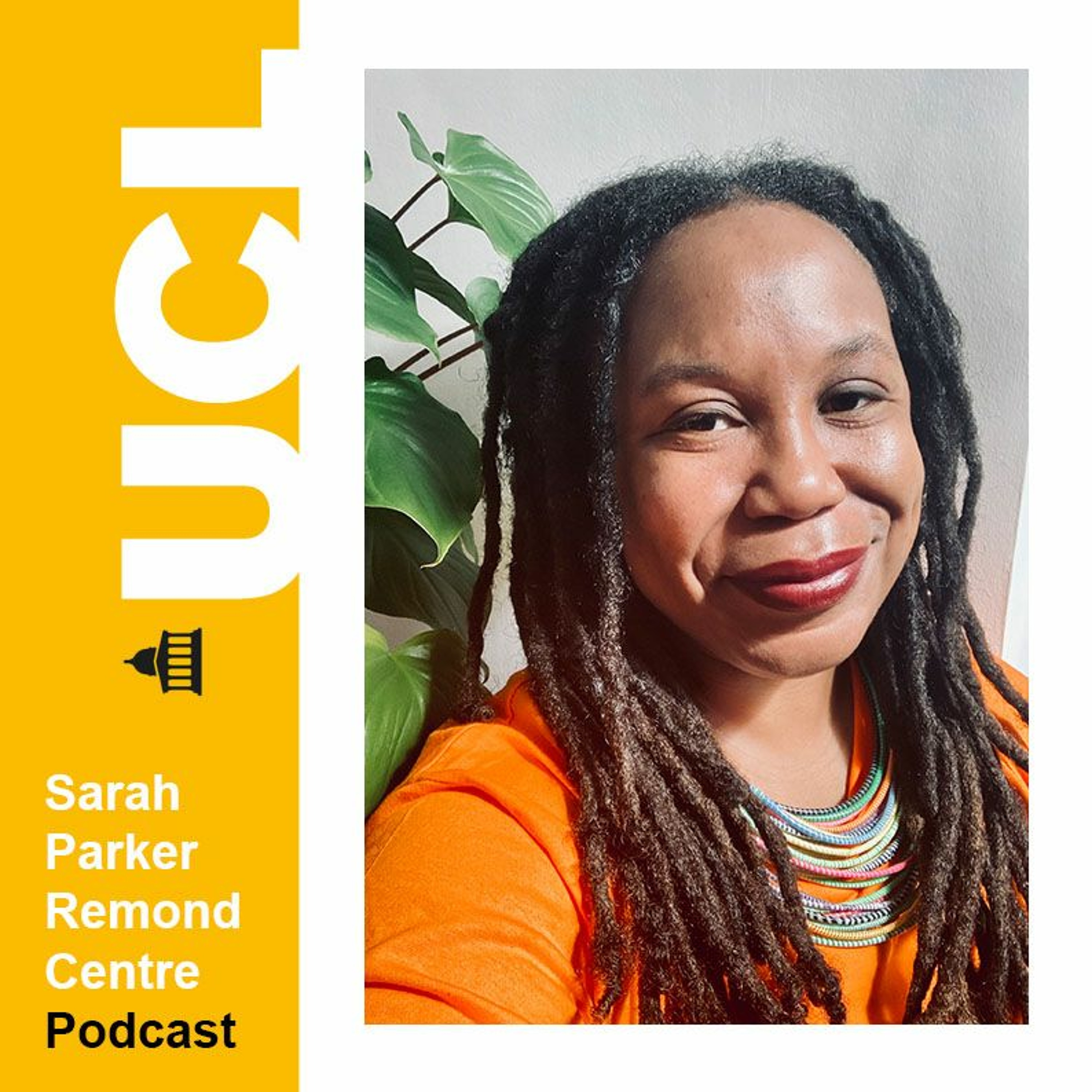
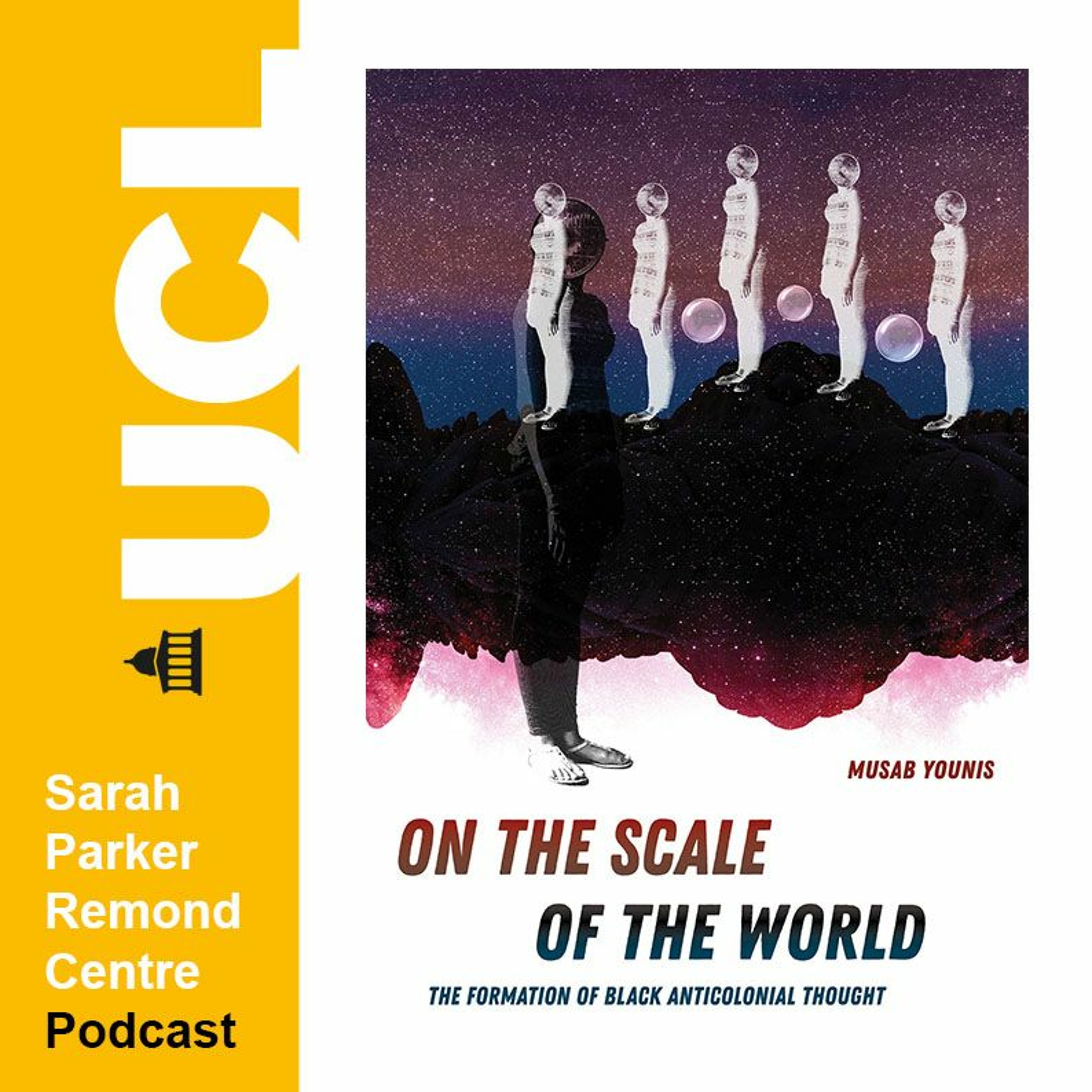


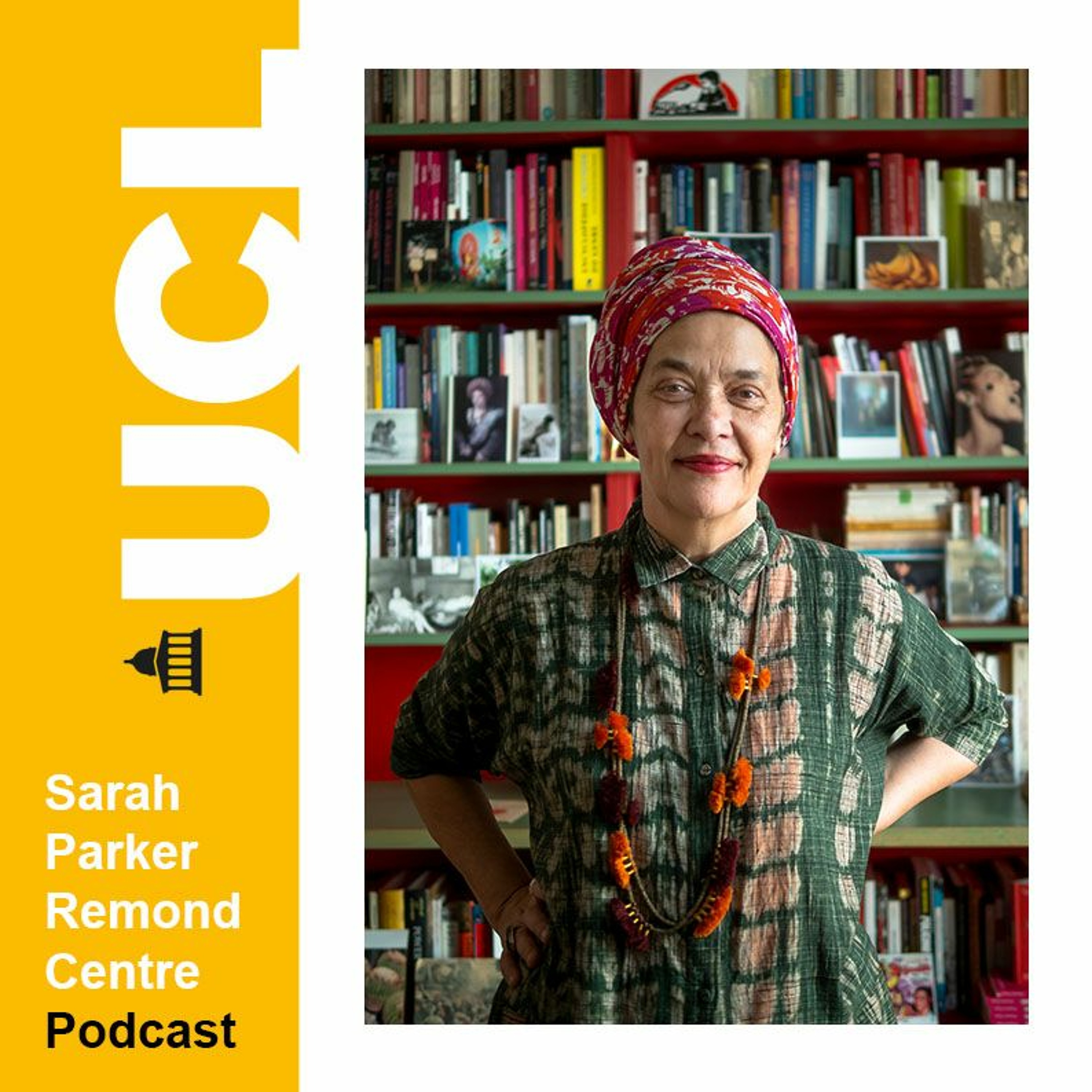

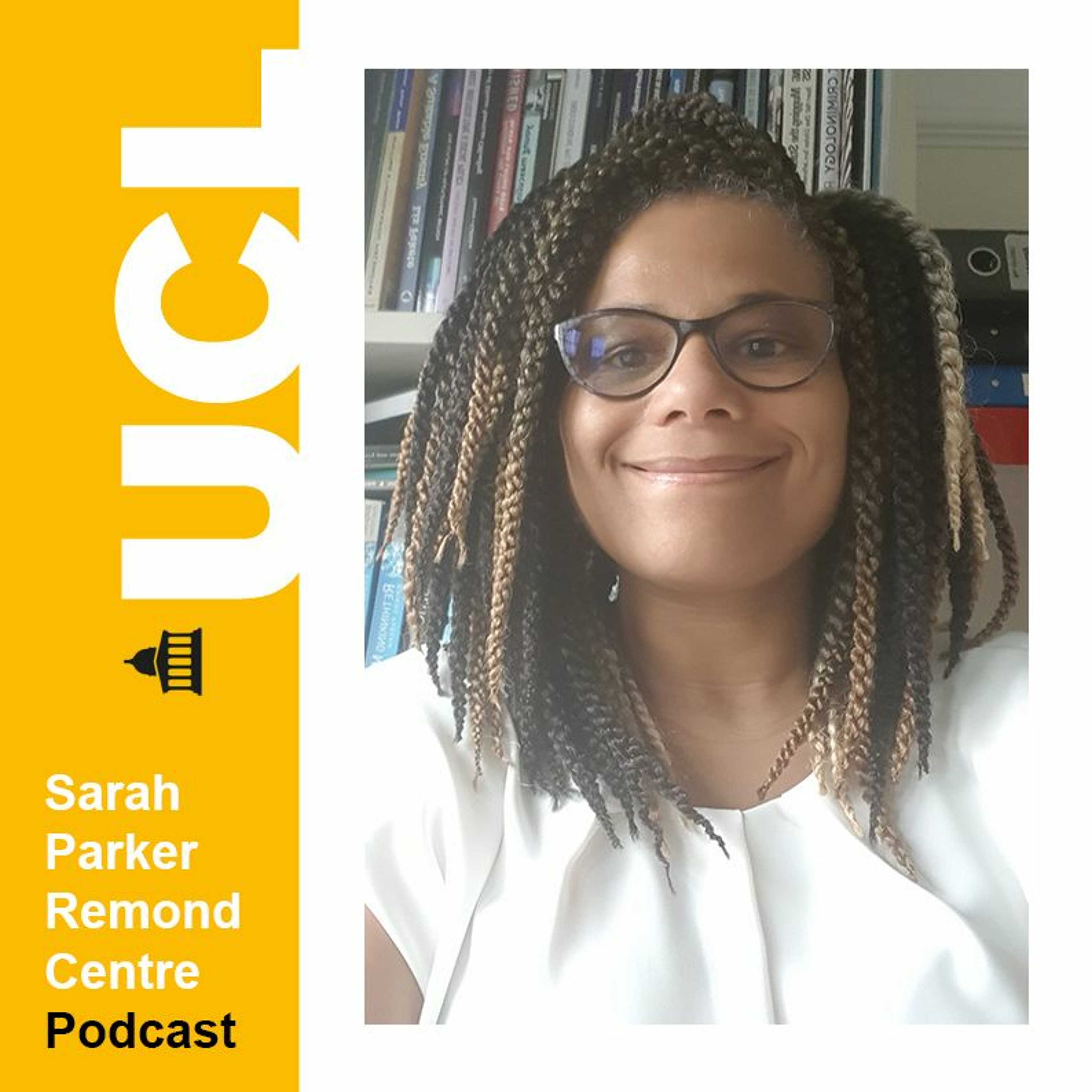







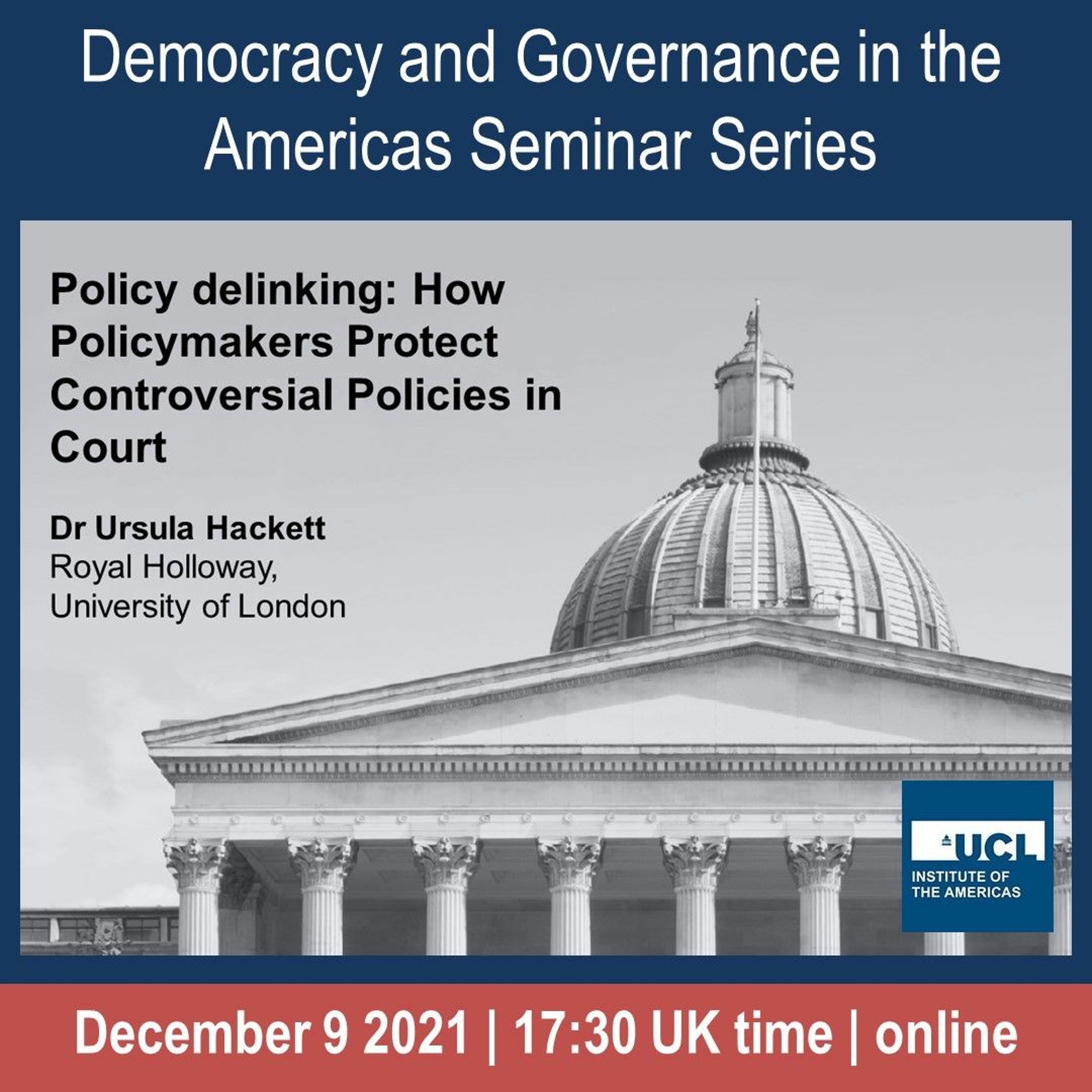



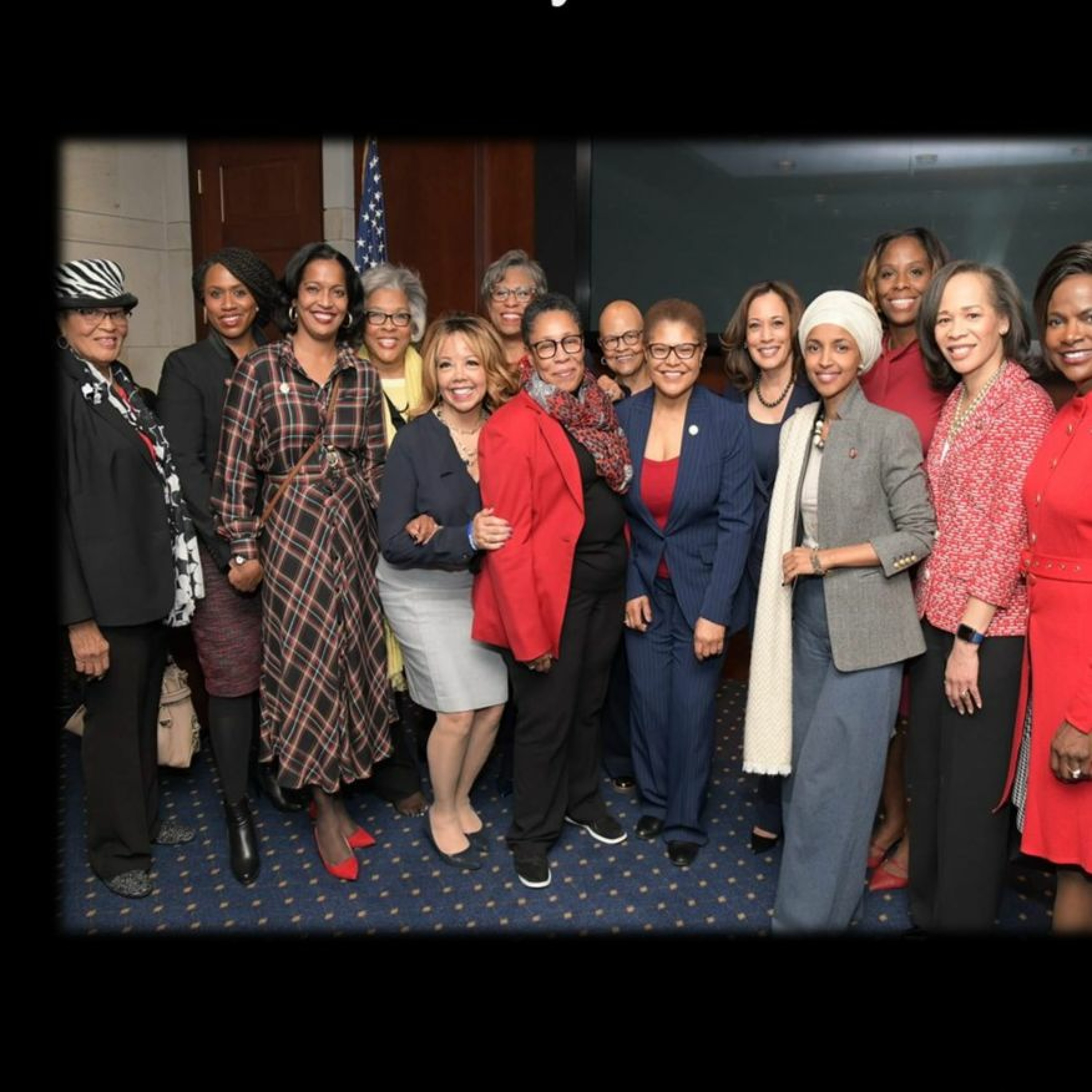



💚CLICK HERE Full HD>720p>1080p>4K💚WATCH>ᗪOᗯᑎᒪOᗩᗪ>LINK> 👉https://co.fastmovies.org